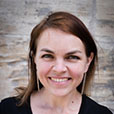View semester dates
2 years part-time,
3 years part-time
.jpg)
Curate heritage for a digital future
Year of entry: 2026 (September)
This course provides professional training in the growing fields of digital archiving, visualisation, museums and heritage sector curation, interpretation and education.
Digital practices are becoming increasingly important in the heritage sector. This course draws together the Department of Archaeology's strengths in archaeological information sciences and cultural heritage to provide a combination of theoretical and applied study of heritage management with practical training in new technologies.
You will be working with a team of technology pioneers and computing scholars who lead the field in researching and developing interpretative content and digital applications for the heritage sector worldwide. You'll have the opportunity for practical placement experience within the heritage sector, develop essential IT knowledge and skills, have access to a full suite of research computing hardware and software and receive tailored careers advice from staff with significant experience of recruiting within the sector.
This course is ideal for graduates of Archaeology, History, Art History, Museum Studies, Education, Anthropology, Cultural Studies and related fields, and for candidates with proven IT experience.
.jpg)
The mix of theory and practical modules in the Digital Heritage course enabled me to stand out when communicating with employers in the museums field, and I loved being able to be really creative and experimental whilst developing a wide range of exciting new skills.
You will study 180 credits over the duration of your course:
You will choose four option modules from examples including:
It is recommended that you choose a minimum of one, preferably two digital optional modules to prepare you for dissertation work.
You'll also have the opportunity to choose options from our full module catalogue. Some option modules combinations may not be possible. The option available to you will be confirmed after you begin your course.
Our modules may change to reflect the latest academic thinking and expertise of our staff, and in line with Department/School academic planning.
You'll complete an 8,000-word dissertation on your research.
You will receive support, advice and guidance from your dissertation supervisor throughout your project. The range of expertise of our staff means we can provide you with guidance on a wide range of topics. You will have one-to-one meetings with supervisors across the Summer Semester.
Examples of previous dissertation topics include:
Every course at York is built on a distinctive set of learning outcomes. These will give you a clear understanding of what you will be able to accomplish at the end of the course and help you explain what you can offer employers. Our academics identify the knowledge, skills, and experiences you'll need upon graduation and then design the course to get you there.
| Study mode | UK (home) | International and EU |
|---|---|---|
| Full-time (1 year) | £12,500 | £27,250 |
| Part-time (2 years) This is the year 1 fee. Fees for future years are subject to confirmation. |
£6,250 | £13,625 |
| Part-time (3 years) This is the year 1 fee. Fees for future years are subject to confirmation. |
£4,167 | £9,083 |
Students on a Student Visa are not currently permitted to study part-time at York.
For courses which are longer than one year, the tuition fees quoted are for the first year of study.
UK (home) or international fees? The level of fee that you will be asked to pay depends on whether you're classed as a UK (home) or international student. Check your fee status.
Find out more information about tuition fees and how to pay them.
We don't anticipate there being any additional fees associated with this course. All books and resources you need will be available in the library or online and it isn't mandatory that you buy your own copies. You may wish to set aside a small budget for photocopying, depending on how you like to work.
Field trips are funded by the Department.
Discover your funding options to help with tuition fees and living costs.
We'll confirm more funding opportunities for students joining us in 2026/27 throughout the year.
If you've successfully completed an undergraduate degree at York you could be eligible for a 10% Masters fee discount.
We are pleased to work with Chevening Scholars to offer funding for our Masters programmes. Chevening Scholarships provide one year of fully-funded postgraduate study in the UK for international (including EU) students. The scholarships are open to early and mid-career professionals who have the potential to become future leaders.
We have a variety of funding options available within the department.
You’ll work with world‐leading academics who’ll challenge you to think independently and excel in all that you do. Our approach to teaching will provide you with the knowledge, opportunities, and support you need to grow and succeed in a global workplace.
You will be taught through a combination of lectures, workshops, practicals and seminars.
There are two dedicated computer labs with a range of imaging software, including 3D Studio Max, AgiSoft Photoscan, Blender, Davinci Resolve, Unity, ArcGIS, and AutoCAD.
The Department has equipment available for student use including total stations, handheld and differential GPS, drones, 360 camera, Leica 360RTI laser scanner, Go-Pro cameras, magnetometers, ground penetrating radar, resistivity meters, video-ready DSLR cameras, microphones, an RTI dome and other photography kit.
You will be based on Campus West and in King's Manor.
Our beautiful green campus offers a student-friendly setting in which to live and study, within easy reach of the action in the city centre. It's easy to get around campus - everything is within walking or pedalling distance, or you can always use the fast and frequent bus service.
You will be assessed by a variety of methods. Depending on which modules you opt to take, these could include:

The Digital Heritage course allowed me to make connections with real innovators and forward thinkers in the industry, as well as gain essential IT skills that speak to employers.
This course offers practical, careers-focused training for many essential roles in heritage-related organisations and other sectors. The digital knowledge you'll develop will leave you well prepared for a wide range of technology-focused careers in archaeology, the heritage sector and beyond.
| Qualification | Typical offer |
|---|---|
| Undergraduate degree | 2:2 or equivalent. |
| Other qualifications and experience | Mature students or those with less conventional qualifications but with relevant professional experience and enthusiasm for this field will be considered. To find out if your professional experience or qualifications are appropriate, please contact the Course Director. |
| Other international qualifications | Equivalent qualifications from your country |
You will need to submit examples of written work with your application. Please see our guidance on submitting written work.
If English isn't your first language you may need to provide evidence of your English language ability. We accept the following qualifications:
| Qualification | Minimum requirement |
|---|---|
| IELTS (Academic and Indicator) | 6.5, minimum 6.0 in each component |
| Cambridge CEFR | B2 First: 176, with 169 in each component |
| Oxford ELLT | 7, minimum of 6 in each component |
| Oxford Test of English Advanced | 136, minimum 126 in each component |
| Duolingo | 120, minimum 105 in all other components |
| LanguageCert SELT | B2 with 33/50 in each component |
| LanguageCert Academic | 70 with a minimum of 65 in each component |
| Kaplan Test of English Language | 478-509, with 444-477 in all other components |
| Skills for English | B2: Merit overall, with Pass with Merit in each component |
| PTE Academic | 61, minimum 55 in each component |
| TOEFL | 87, minimum of 21 in each component |
| Trinity ISE III | Merit in all requirements |
For more information see our postgraduate English language requirements.
You may be eligible for one of our pre-sessional English language courses. These courses will provide you with the level of English needed to meet the conditions of your offer.
The length of course you need to take depends on your current English language test scores and how much you need to improve to reach our English language requirements.
After you've accepted your offer to study at York, we'll confirm which pre-sessional course you should apply to via You@York.
Get in touch if you have any questions

.jpg)



